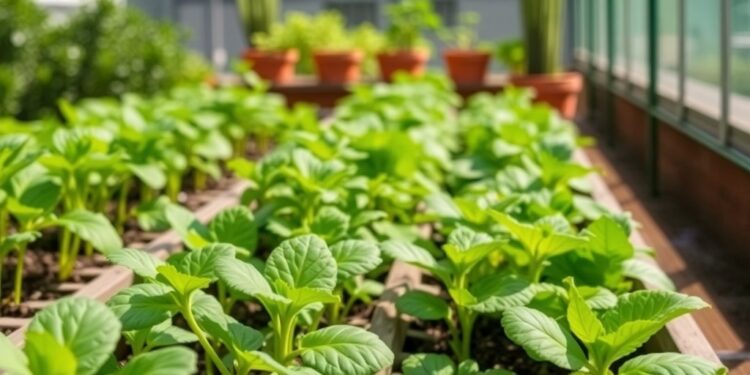The innovative reuse of human urine presents a groundbreaking opportunity to transform urban agriculture by creating sustainable fertilizers. Researchers from the Institute of Environmental Science and Technology at the Universitat Autònoma de Barcelona (ICTA-UAB) have conducted an extensive study exploring the potential environmental benefits associated with nitrogen recovery from human waste. Their findings underscore the pressing need to adopt alternative and renewable resources to meet the growing global demand for fertilizers, which has escalated at a staggering rate, with a 1% annual increase translating to an additional 1.074 million tons each year according to the Food and Agriculture Organization (FAO).
The traditional production of fertilizers poses serious concerns regarding its reliance on non-renewable energy sources. Natural gas, oil, and coal dominate this sector, leading to substantial energy consumption and greenhouse gas emissions. The redundant CO2 emissions generated during fertilizer production have driven the search for more environmentally friendly alternatives, and researchers believe that human urine, often dismissed as waste, is a significant untapped resource.
The feasibility of this approach has been assessed through experimental research conducted at the bioclimatic building at ICTA-UAB. This site features a pilot plant dedicated to nitrogen recovery, complemented by a state-of-the-art greenhouse situated on the rooftop. Within this controlled environment, researchers have meticulously evaluated the efficacy of the recovered nitrogen on hydroponic tomato crops, which serve as a model for broader agricultural applications. The process begins by collecting urine from waterless male urinals, stored in a specialized facility designed to handle this nutrient-rich waste.
Once collected, the urine is conveyed to a custom reactor where intricate biological processes are set into motion. In this phase, the urine is mixed with a base compound aimed at regulating acidity levels. Subsequently, microorganisms within the reactor convert urea into nitrate, transforming the nitrogen into a biologically available form that plants can easily absorb. The produced nitrate is then directed to nourish the hydroponic tomatoes cultivated in the greenhouse, demonstrating a tangible application of this concept.
Research results indicate that each cubic meter of treated yellow water can yield approximately 7.5 kg of nitrogen, sufficient to support the cultivation of nearly 2.4 tons of tomatoes. These findings open up new agricultural possibilities by illustrating how urban settings could efficiently recycle human-generated waste into valuable inputs for food production. Such a system not only promotes urban agriculture but also significantly lessens the dependency on traditional fertilizers derived from limited natural resources.
While the study remains at the laboratory scale, the researchers envision a compelling case for further scaling up their operations. By extending the nitrogen recovery network to connect all urinals within the building, the environmental and economic impacts of urine recovery could substantially improve. Ongoing research aims to evaluate additional factors, including the potential presence of pharmaceutical compounds consumed by humans, which may unintentionally find their way into crop tissues, providing a holistic understanding of the health implications involved.
The implications of this study extend far beyond mere agricultural practices. The efficient use of human urine as a nitrogen source supports a paradigm shift in resource management strategies, promoting sustainability and environmental stewardship. As cities continue to grow and face mounting pressure to provide for their inhabitants, innovative solutions like urine-based fertilizers could empower urban agriculturalists to minimize their ecological footprint while maximizing crop yield.
The concept of circular economies is gaining traction, reinforcing the need for sustainable practices in both rural and urban contexts. Resource recovery initiatives, such as utilizing human urine, highlight the importance of rethinking waste management and agricultural practices to foster resilience against climate change and resource depletion. This shift is not merely an environmental imperative but also an avenue toward safeguarding food security in a world increasingly challenged by resource scarcity.
In conclusion, the research conducted by ICTA-UAB paves the way for a sustainable future in urban agriculture, harnessing human waste to regenerate vital nutrients for food production. By embracing innovations such as nitrified urine fertilizers, agricultural systems can evolve to become more sustainable and resilient, ensuring that urban areas can thrive amidst the challenges posed by climate change, population growth, and environmental degradation.
Subject of Research:
Article Title: Urine luck: Environmental assessment of yellow water management in buildings for urban agriculture
News Publication Date: 19-Jan-2025
Web References:
References:
Image Credits:
Keywords: Sustainable agriculture, Urine, Nitrogen, Fertilizers, Natural resources conservation, Water, Human fertilization, Sustainability, Food production, Food resources, Chemical processes.
Tags: alternative fertilizer researcheco-friendly fertilizer alternativesenvironmental benefits of urine recyclingfood security and fertilizersgreenhouse gas emissions from fertilizershuman urine as a nutrient sourceinnovative agriculture solutionsnitrogen recovery from human wasterenewable resources in agriculturesustainable fertilizers from urineurban agricultureurban farming sustainability





